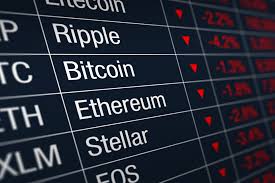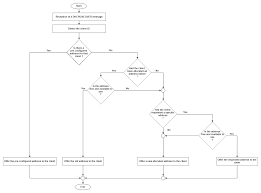What does an IP address tell you and how it can put you at risk
April 23, 2021
Cars have VINs. Humans have Social Security numbers. And our internet-connected devices have unique identifiers, too — Internet Protocol addresses, commonly known as IP addresses.
Similar to those other identifiers in our lives, an IP address does reveal a little bit about you, namely your geolocation.
Here, we’ll dig further into the meaning, purpose, and inner workings of an IP address to explain just what does an IP address tell you — and others.
What is an IP address?
An IP address is a string of numbers assigned to an internet-connected device, much like an address on a house. Your computer network uses the IP address to communicate with other computers, websites, and all parts of cyberspace.
Essentially, IP addresses are how computers on the internet recognize one another. Your internet service provider (ISP) assigns IP addresses to your internet-connected devices, and every IP address is unique. Considering every single internet-connected device has an IP address, billions of IP addresses exist.
You can think of an IP address like a membership card to enter the World Wide Web. Every device that can connect to the internet is a member of the World Wide Web — computers, laptops, tablets, mobile phones, routers, etc. — and all have an IP address. Websites and computer networks require that form of identification for you to interact with them.
Understanding an IP address and how it works aside, it’s also important to understand the purpose of IP addresses in the first place.
What is the purpose of an IP address?
An IP address can be considered a digital address for your internet-connected devices, as it reveals your geolocation to help the internet deliver content that’s relevant to you.
For example, it’s due in part to your IP address that you see local restaurants pop up when you search “sushi restaurants. ”
How to find your IP address
To find your IP address, simply Google “what is my IP address. ” It’s as simple as that: The internet provides your IP address back to you. The internet knows your IP address because it’s assigned to your device and it is required to browse the internet.
Worth mentioning is that your IP address changes every time you connect to a different Wi-Fi network or router. Online users won’t even know the difference and, generally, they don’t need to — much like how they don’t necessarily need to know how to read an IP address.
Rather, online users should be aware of what information their IP address reveals.
What information does my IP address reveal?
IP addresses do reveal your geolocation, but not your precise location like a home address and never your name, phone number, or other precise personal information. Instead, IP addresses might reveal your city, ZIP code, or area code of where you are connecting to the internet at that moment — this is why IP addresses change every time you connect from a new location or using a new router.
And it’s generally your router’s IP address that is revealed, not the IP address of your internet-connected devices such as a computer, tablet, or mobile phone that communicate with a router to connect to the internet. Sure, these internet-connected devices share their IP address with your router, but your router uses its own IP address to grant your device access to the World Wide Web.
It’s for this reason that your IP address almost always reveals the geolocation of your ISP’s nearest servers — not your physical location at all — and your IP address also reveals the name of your ISP.
Finally, to put your mind at ease, we have answers to a few common IP address FAQs regarding what information an IP address reveals about you:
What does an IP address tell you? For the most part, an IP address tells you the city, ZIP code, or area code of your ISP, as well as your ISP’s name.
What can an IP address tell you? To some degree, your physical location and also the name of your ISP.
Can IP addresses reveal your identity? No, not outrightly. However, others can piece together bits of your identity, using your IP address and by following your online activity.
How others can find your IP address — and why they want to
For others to find your IP address, it is not as easy as searching “What is [insert name]’s IP address. ” It takes a bit more legwork. But it’s also not as difficult as some might think, considering we leave our digital footprints and, in turn, IP addresses behind online with every click.
Remember, IP addresses are like your membership card to the internet and are required to enter any website and webpage on it. So, every time you click something online it’s like signing a guestbook and your IP address is the signature you leave behind. This includes social media sites, internet forums, chatrooms, and blogs you comment on. All of these platforms can view your IP address.
Also, cybercriminals can find your IP address by hacking into your home network or placing a bug in email HTML.
For a more straightforward approach to find your IP address, others might simply borrow your device and Google “what is my IP address” or inspect the header of an email address. There are also IP lookup services, whereby users can simply copy and paste an IP address into a search bar and discover a person’s geolocation.
Authorities, including, law enforcement or fraud investigators, can also use subpoenas to contact your ISP and get your IP address.
But, why would other people want to know your IP address and what would they do with it?
Is it dangerous for people to know your IP address?
Since an IP address doesn’t outrightly reveal your personal information or confidential data, it’s generally not dangerous for people to know your IP address — but it all depends on who’s trying to access it.
Consider the following parties who might be interested in your IP address and why:
Authorities to piece together illegal activities
Employers to understand where you’re spending time online at work
Advertisers to target you with relevant products and services
Blacklist databases to block access from spammers
Retailers to cross-check your geolocation with your payment method’s mailing address
Chatrooms to block inappropriate users
Subscription services to block users from accessing content unavailable in their area or region
Hackers to install malware on your devices
Cybercriminals to put you at risk of Denial of Service attacks
Criminals who, if they already know your personal information, might call your ISP and commit a vishing attack
You might even want to use an IP address to confirm whether an online friend or virtual love interest resides where they say they do
As with most things in life, people’s intentions vary.
When it comes to others trying to find your IP address, some might have malicious intentions, such as to track you. Others, however, might be watching out for you, such as a well-intentioned bank confirming a transfer request is being submitted by you.
Finally, just because someone knows your IP address does not necessarily mean they will wind up on your doorstep. Still, you might want to take measures to protect your IP address.
How to protect your IP address
The simplest and most straightforward way to protect your IP address is to use a virtual private network (VPN) because this anonymizes your online activity using encryption. It also changes your IP address completely, placing your geolocation hundreds or maybe thousands of miles from where you actually are accessing the internet.
Talk about throwing someone off your digital tail.
The bottom line: IP addresses reveal geolocations and you can prevent this
No, IP addresses are not as sacred as our Social Security numbers, but it’s still worth understanding what an IP address reveals and also how to hide your IP address if you want to.
After all, being informed is a best practice when it comes to protecting our online privacy.
Cyber threats have evolved, and so have we.
Norton 360™ with LifeLock™, all-in-one, comprehensive protection against viruses, malware, identity theft, online tracking and much, much more.
Try Norton 360 with Lifelock.
Editorial note: Our articles provide educational information for you. NortonLifeLock offerings may not cover or protect against every type of crime, fraud, or threat we write about. Our goal is to increase awareness about cyber safety. Please review complete Terms during enrollment or setup. Remember that no one can prevent all identity theft or cybercrime, and that LifeLock does not monitor all transactions at all businesses.
Copyright © 2021 NortonLifeLock Inc. All rights reserved. NortonLifeLock, the NortonLifeLock Logo, the Checkmark Logo, Norton, LifeLock, and the LockMan Logo are trademarks or registered trademarks of NortonLifeLock Inc. or its affiliates in the United States and other countries. Firefox is a trademark of Mozilla Foundation. Android, Google Chrome, Google Play and the Google Play logo are trademarks of Google, LLC. Mac, iPhone, iPad, Apple and the Apple logo are trademarks of Apple Inc., registered in the U. S. and other countries. App Store is a service mark of Apple Inc. Alexa and all related logos are trademarks of, Inc. or its affiliates. Microsoft and the Window logo are trademarks of Microsoft Corporation in the U. The Android robot is reproduced or modified from work created and shared by Google and used according to terms described in the Creative Commons 3. 0 Attribution License. Other names may be trademarks of their respective owners.

Can Someone Find Me With My IP Address?
People are concerned with finding me with IP address simply by someone and the following outlines how this is not possible. However only with one exception that this may happen.
Someone has my IP address, can they find me?
When you connect to the internet through your Internet Service Provider(ISP) you are assigned an IP address. Your IP address is similar to your mailing address, but for your computer, on the internet. The IP address routes internet traffic to your computer. To clarify, it does not reveal your location. If someone was able to get your IP address they could learn a bit about your internet service, such as which provider you use to connect to the internet, but they really can’t locate you, your home, or your office.
In some circumstances they may locate the city you are in, or perhaps a nearby city, but they will not have your physical address. Once they trace you back to your ISP they will lose your trail. While strangers may not be able to find you, your ISP knows where you are. ISPs will generally go to great lengths to protect you and your privacy but they do keep logs of your connections.
To clarify, with one big exception found. If you were to participate in illegal activities then a law enforcement agency can get a court order and submit it to your ISP to request your information. One way you can be found is with the involvement of law enforcement.
In the end, the simple answer is no. If someone was to get your IP address they can not find you. There are other ways you can be located but this isn’t one of them. Posting your name and town online to social media would more likely tracked than by your IP address.
My IP Info
Hide My IP

What you can do with an IP address, and how to protect yours from hackers
With someone’s IP address, you can learn a user’s general location, and disable some parts of their internet browsing device connected to the internet has an IP address, which helps websites identify your third-party programs or services, someone with your IP address could possibly block you from reaching certain you’re concerned about the security of your IP address, consider installing a firewall and Business Insider’s Tech Reference library for more stories.
Loading
Something is loading.
Every device that connects to the internet has an IP (Internet Protocol) address. The
IP address, which is composed of a series of numbers separated by decimal points, looks something like “198. 169. 0. 100. ” This number is used to help devices talk to each other and exchange data. Your network router has its own IP address, of course, as does every device on your network. But because these identifiers are so important, that means a hacker can potentially use them against you. Here’s what you should know about your IP address, and what it can be used for.
What you can do with an IP addressFirstly: most users won’t have to worry about any of this. It’s unlikely that any hacker would take the time to learn your specific IP address, and manipulate your specific device. There’s no real reward in it for them, so unless they love playing pranks, it would be a waste of fact, every website you visit already knows your IP address — that’s how they know to load on your computer, as opposed to someone else’ said, armed with your IP address, someone has the potential to take certain actions against your network. As such, it’s a good idea to keep your IP private from individuals you don’t could:
Block you from accessing websitesIt’s possible to use your IP address to prevent you from performing certain online activities. The most common example of this is blocking your ability to reach a certain site, or to post messages in forums or the comment section of web sites. In fact, this is the most common way that website administrators ban rulebreakers. It’s often referred to as an “IP Ban. “Your IP address can also be used to block or ban you from playing online games on some gaming services.
Learn your general geographic location Your IP address can reveal your geographic location. In most cases, this won’t be any more specific than your city and state. In rare cases, it could be as specific as your IP address also carries the name of your Internet Service Provider (the company that gives you internet access — think Spectrum, or Xfinity).
Your IP address signals where you are. ; William Antonelli/Business Insider
While there’s not a lot someone can do with this information, it can be combined with details from other sources to piece together data about your identity.
Perform a Denial of Service AttackKnowing your IP address, a malicious user may be able to perform a Denial of Service (DoS) attack, in which your network is flooded with data. It prevents normal traffic from getting through and overloads the network’s ability to function. However, these attacks are usually directed at large companies or websites — it’s rare that anyone would set up a DoS attack on a regular user.
How to protect your IP addressWhile there are some risks, your IP address alone poses very limited danger to you or your network. Your IP address can’t be used to reveal your identity or specific location, nor can it be used to hack into or remotely take control of your computer. That said, if you’re still concerned, a few simple precautions can help protect and foremost, your network should be protected with a firewall. Most routers have firewalls built in, but you should contact your router manufacturer or internet service provider to learn about your additional protection, you can use Virtual Private Network (
VPN) software. A VPN hides your IP address from all outside users, making it extremely difficult for someone to uncover your IP address or monitor your online activity.
NordVPN is one of the most popular VPN services.
NordVPN; William Antonelli/Business Insider
‘What is my IP? ‘: Here’s what an IP address does, and how to find yours’What is a good internet speed? ‘: The internet speeds you should aim for, based on how you use the internet’What is Wi-Fi calling? ‘: How to make calls from your smartphone even if you don’t have a cell signalHow to find the IP address of your internet router using a Mac, PC, iPhone, or AndroidNo, Bluetooth doesn’t use cellular data — here’s how the popular wireless technology connects your devices
Dave Johnson
Freelance Writer
Dave Johnson is a technology journalist who writes about consumer tech and how the industry is transforming the speculative world of science fiction into modern-day real life. Dave grew up in New Jersey before entering the Air Force to operate satellites, teach space operations, and do space launch planning. He then spent eight years as a content lead on the Windows team at Microsoft. As a photographer, Dave has photographed wolves in their natural environment; he’s also a scuba instructor and co-host of several podcasts. Dave is the author of more than two dozen books and has contributed to many sites and publications including CNET, Forbes, PC World, How To Geek, and Insider.
Read more
Read less
Insider Inc. receives a commission when you buy through our links.
Frequently Asked Questions about what does my ip address reveal
Does my IP address show my address?
The IP address routes internet traffic to your computer. To clarify, it does not reveal your location. If someone was able to get your IP address they could learn a bit about your internet service, such as which provider you use to connect to the internet, but they really can’t locate you, your home, or your office.
Can someone see what you’re doing with your IP address?
Your IP address can’t be used to reveal your identity or specific location, nor can it be used to hack into or remotely take control of your computer. … A VPN hides your IP address from all outside users, making it extremely difficult for someone to uncover your IP address or monitor your online activity.Jun 2, 2020

